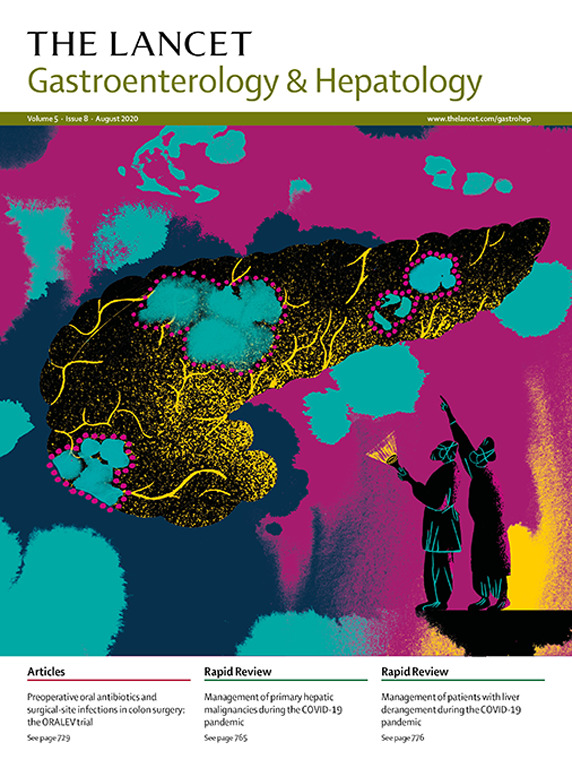ECCO'25
IF 30.9
1区 医学
Q1 GASTROENTEROLOGY & HEPATOLOGY
引用次数: 0
Abstract
Section snippets
Duvakitug in Crohn's disease and ulcerative colitis
Duvakitug—an anti-TL1A antibody—was safe and efficacious for induction in patients with Crohn's disease and in those with ulcerative colitis, according to data from the double-blind, phase 2b RELIEVE UCCD basket trial. In the first presentation by Vipul Jairath (London, ON, Canada), 138 adults with moderately to severely active Crohn's disease with inadequate response, loss of response, or intolerance to conventional or advanced therapies, or both, were randomly assigned (1:1:1) toLusvertikimab for ulcerative colitis
According to the phase 2 CoTikiS study presented by Arnaud Bourreille (Nantes, France), lusvertikimab—a first-in-class IL-7Rα antagonist—was safe and efficacious in patients with moderately to severely active ulcerative colitis and inadequate response to conventional therapies or failure of advanced therapies, or both. 136 participants were randomly assigned (1:1:1) to receive lusvertikimab 450 mg (n=36), lusvertikimab 850 mg (n=51), or placebo (n=49), intravenously, at weeks 0, 2, and 6. TheLow-emulsifier diet for Crohn's disease
Presented by Aaron Bancil (London, UK), the randomised, double-blind ADDapt trial found that a low-emulsifier diet was safe and efficacious in reducing disease activity in patients with mild to moderately active Crohn's disease. 154 patients with a Crohn's Disease Activity Index (CDAI) of 150–200 and evidence of inflammation (per faecal calprotectin ≥150 μg/g or endoscopy or radiology) were randomly assigned to receive a low-emulsifier diet (intervention; n=79) or the low-emulsifier diet plus求助全文
约1分钟内获得全文
求助全文
来源期刊

Lancet Gastroenterology & Hepatology
Medicine-Hepatology
CiteScore
50.30
自引率
1.10%
发文量
0
期刊介绍:
The Lancet Gastroenterology & Hepatology is an authoritative forum for key opinion leaders across medicine, government, and health systems to influence clinical practice, explore global policy, and inform constructive, positive change worldwide.
The Lancet Gastroenterology & Hepatology publishes papers that reflect the rich variety of ongoing clinical research in these fields, especially in the areas of inflammatory bowel diseases, NAFLD and NASH, functional gastrointestinal disorders, digestive cancers, and viral hepatitis.
 求助内容:
求助内容: 应助结果提醒方式:
应助结果提醒方式:


